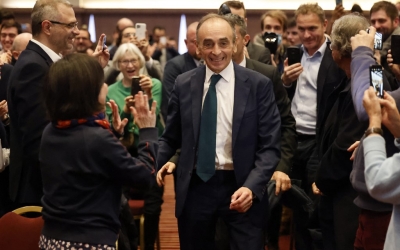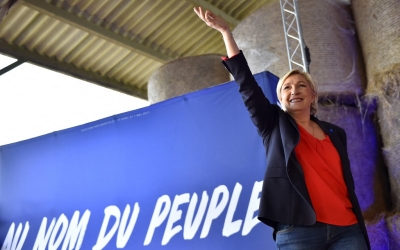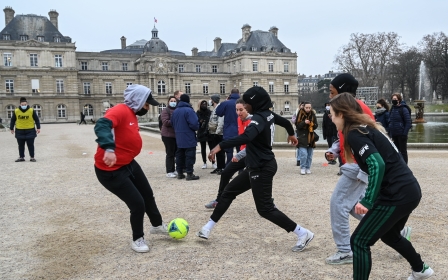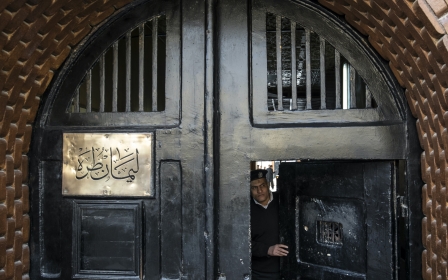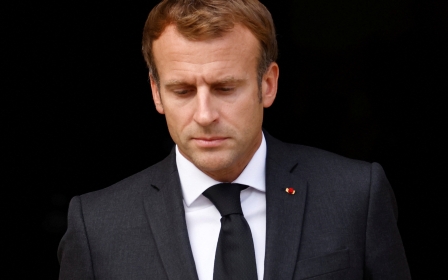France elections 2022: The officials living in fear of racist attacks
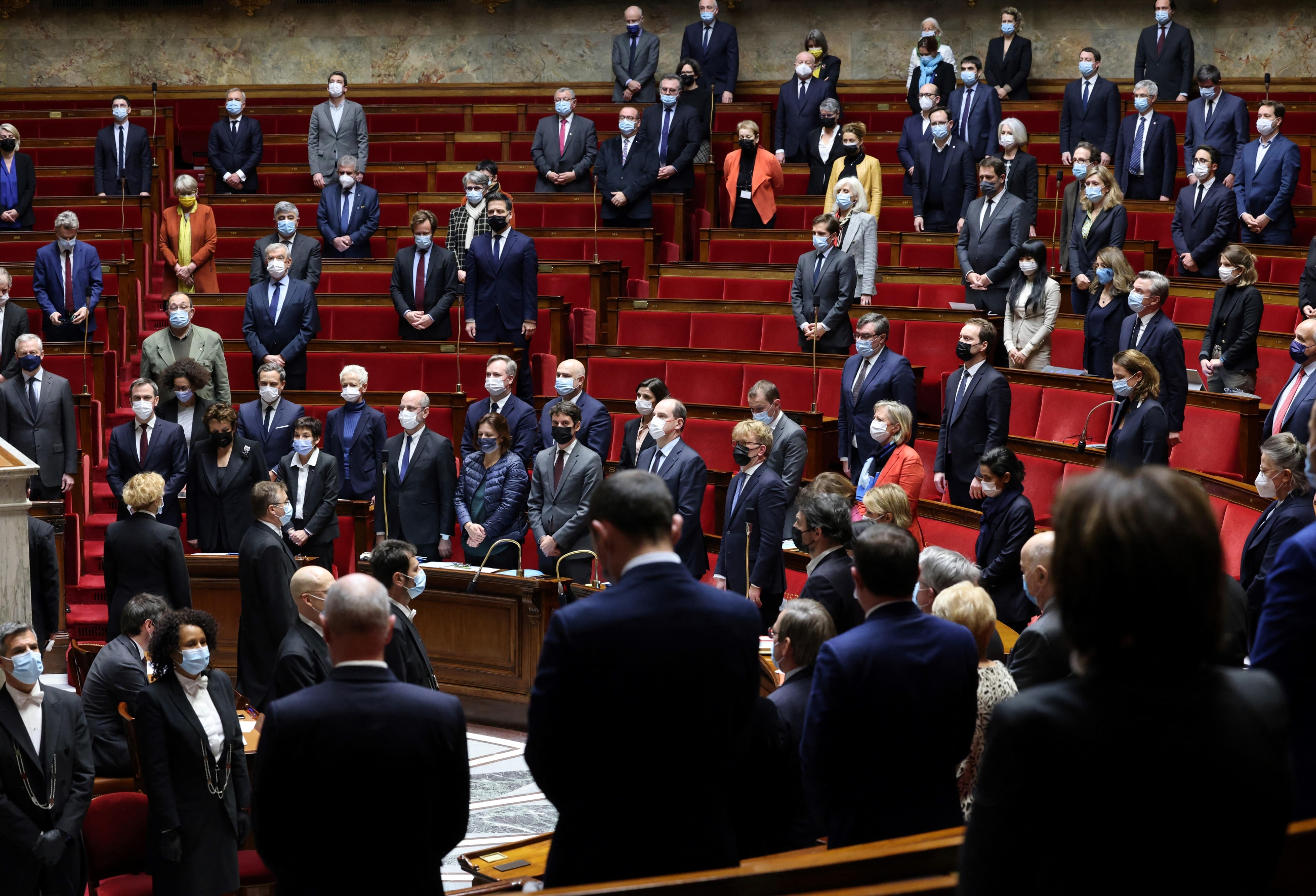
A portrait of Zinedine Zidane, one of French football’s greatest players, hangs on the wall of Mohand Ouahrani’s office.
“I am of Kabyle origin like him,” said the elected mayor of Villejuif, in the Val-de-Marne department of Greater Paris, during a recent visit by Middle East Eye.
“With the victory of the French team [in the 1998 World Cup], we dreamed of a ‘black-white-beur’ [slang for Arab] momentum,” he sighed, referring to an idealised notion of multicultural France attached to that team.
“But it was temporary. Twenty-two years later, we have taken several steps backwards.”
As municipal councilor for youth and sports, Ouahrani has been the target of several racist insults since his election in 2020 on the list of the current communist mayor.
New MEE newsletter: Jerusalem Dispatch
Sign up to get the latest insights and analysis on Israel-Palestine, alongside Turkey Unpacked and other MEE newsletters
Eyes on his phone, he searches his Facebook wall to find a few messages.
"You see, they write on my profile,” he says, “'The Arabs have taken the city', or even 'Go home, let us live in peace among the French.'"
After a particularly violent message in June 2021, Ouahrani filed a complaint with the national police.
It has not led to any legal action, though some of the perpetrators wrote the messages without hiding their names.
“No one has gone to question them,” Ouahrani said. “Zero news so far. From time to time, we have to set examples. If our republic wants to move forward, this needs to be punished.
“If we let these people carry on, they will take more and more ground... Today, racists speak openly, show their faces. They no longer need to hide.”
Ouahrani hangs a scarf in the Palestinian colours in a corner of his office. “I have to go there in the coming months, and I know that it will create further tension,” he said, but this support “annoys some people in France”.
'Everyone's business'
"You're going to die, scum!”
“The only solution to rebuild France is to send back the Islamic parasites.”
Socialist deputy Lamia El Aaraje stood up in France’s National Assembly in January, took the microphone and, in a firm voice, read out some of the threats she has been subjected to.
Translation: Violence against elected officials: "We cannot bring ourselves to have our disagreements result in acts of violence, intimidation or harassment against elected officials", affirms @lamiaela, who calls for a "surge of republican spirit".
Speaking over the phone, the elected official confided to MEE that the insults she receives "are 90 percent racist", and that fellow deputies have also been verbally attacked.
“It’s really hard when I am attacked on a personal level, when my husband is attacked,” said the Franco-Moroccan, “and I am worried about my children.
"I have a real personal problem with social networks, unlike some of my colleagues who are able to take some distance,” she added. “I have trouble, because I find them so unfair.”
A few days after her speech in the National Assembly, El Aaraje published an op-ed in France’s Journal du Dimanche newspaper to raise awareness about the issue.
“Respect for democratic life is everyone’s business,” she wrote.
The MP has already lodged two complaints about “non-public incitement to hatred or violence because of origin, ethnic group, nation, race or religion”.
But El Aaraje is under no illusions: with no identified perpetrators, these complaints will most likely be closed. She has not hired a lawyer.
For several weeks, however, for the first time, her home and her children's school have been included in the local police patrols.
Meagre support
In recent years, insults and threats against MPs of foreign origin have become commonplace, to the almost total indifference of other parliamentarians who were unaffected.
But over the past two years, with the Gilets Jaunes crisis then the Covid-19 pandemic, attacks and abuse against French elected officials have multiplied, especially on social networks.
According to Richard Ferrand, the president of the National Assembly, 430 of 577 deputies have been threatened for their positions on the Covid-19 vaccine.
The government has recently strengthened elected officials’ security and set up a unit dedicated to dealing with complaints they raise.
The Ministry of the Interior told MEE that it does not treat racist threats and insults differently from, say, insults made after a deputy takes a position on a legal text.
However, in the French penal code, a whole series of legal articles clearly punish racism.
According to a survey carried out by SOS Racisme in March 2021, 43 percent of those questioned believe that there are too many Muslims and North Africans in France.
A 'bullet in the head'
The complaint filed three years ago by Jean Francois Mbaye has already been closed.
The deputy of Macron’s centre-right La Republique en Marche party turned to the police after receiving an anonymous letter in January 2019, threatening him with a “bullet in the head”.
'If I could do without this campaign, I would, because we are not ready for its violence, and I don’t do politics for that'
- Lamia El Aaraje, socialist deputy
Since his election in 2017, the Franco-Senegalese deputy reports having received up to 15 racist threats.
“There is solidarity [among parliamentarians], yes, but I would say that it’s temporary,” he told MEE.
“No one in the National Assembly is interested. You know, among elected officials, I still hear: ‘I am not racist, I have a black or Arab friend’, and that is already a first act of racism.”
A difficult campaign
All the elected officials interviewed by Middle East Eye said they were worried about the run-up to the first round of presidential elections on 10 April.
“The trivialisation of racism risks creating tensions,” adds Mbaye.
He refers not only to presidential candidate Eric Zemmour, a far-right polemicist, but also Valerie Pecresse. The right-wing Les Republicains’ candidate recently said that she wanted to "take the pressure washer out of the cellar" to "clean up the neighbourhoods" and "restore order in the street", borrowing the words of former president Nicolas Sarkozy when he was interior minister.
For El Aaraje, the presidential campaign has already begun: the deputy is supporting the socialist former Paris mayor Anne Hidalgo and will be a candidate for her own re-election in the June legislative elections.
“I am very apprehensive,” she tells MEE. “If I could do without this campaign, I would, because we are not ready for its violence, and I don’t do politics for that.”
This article first appeared on Middle East Eye’s French website.
Middle East Eye delivers independent and unrivalled coverage and analysis of the Middle East, North Africa and beyond. To learn more about republishing this content and the associated fees, please fill out this form. More about MEE can be found here.


